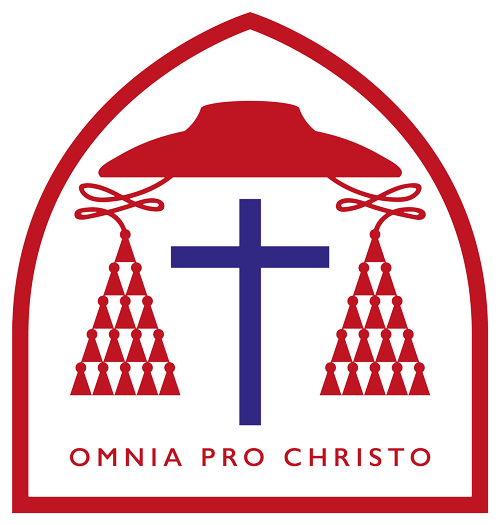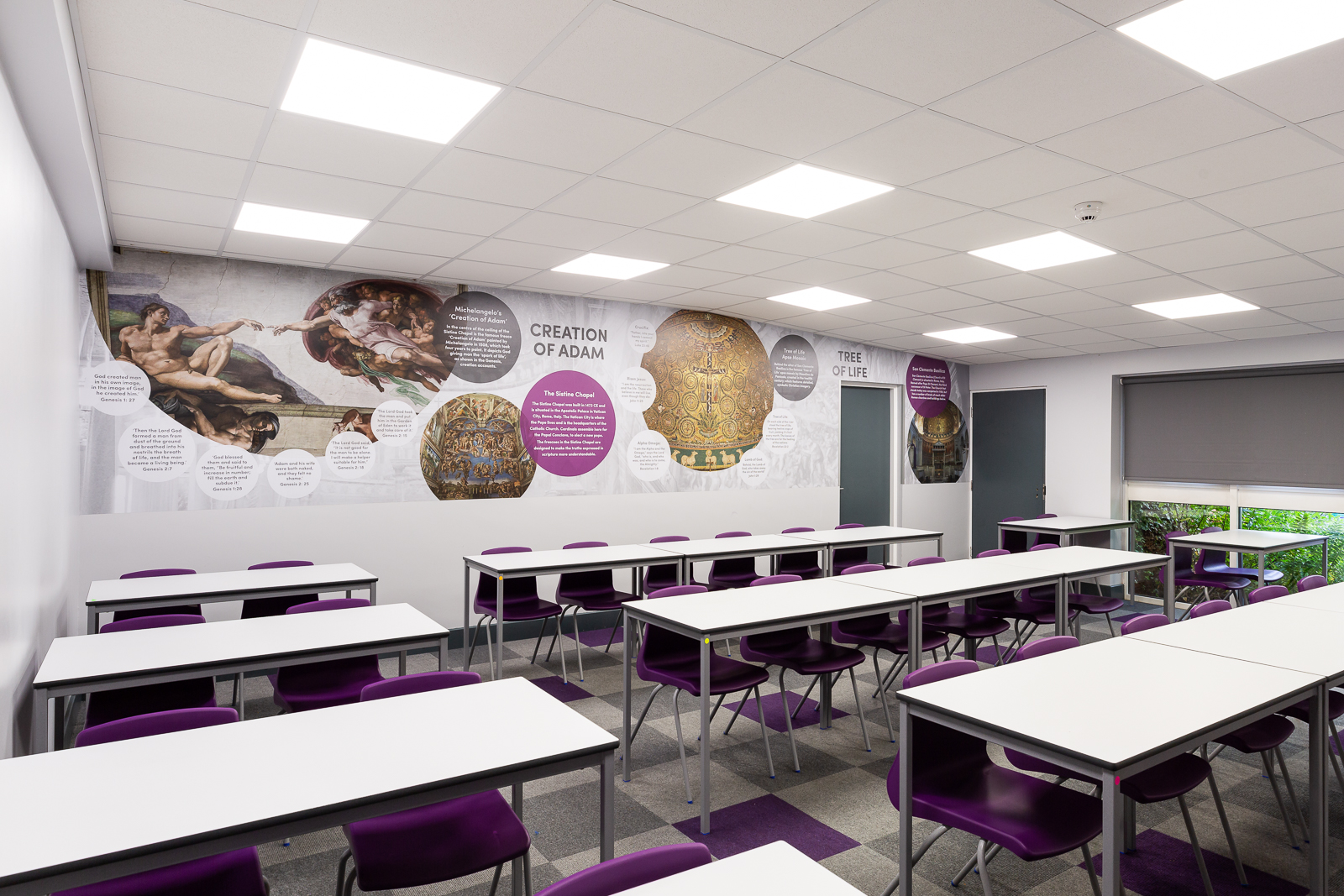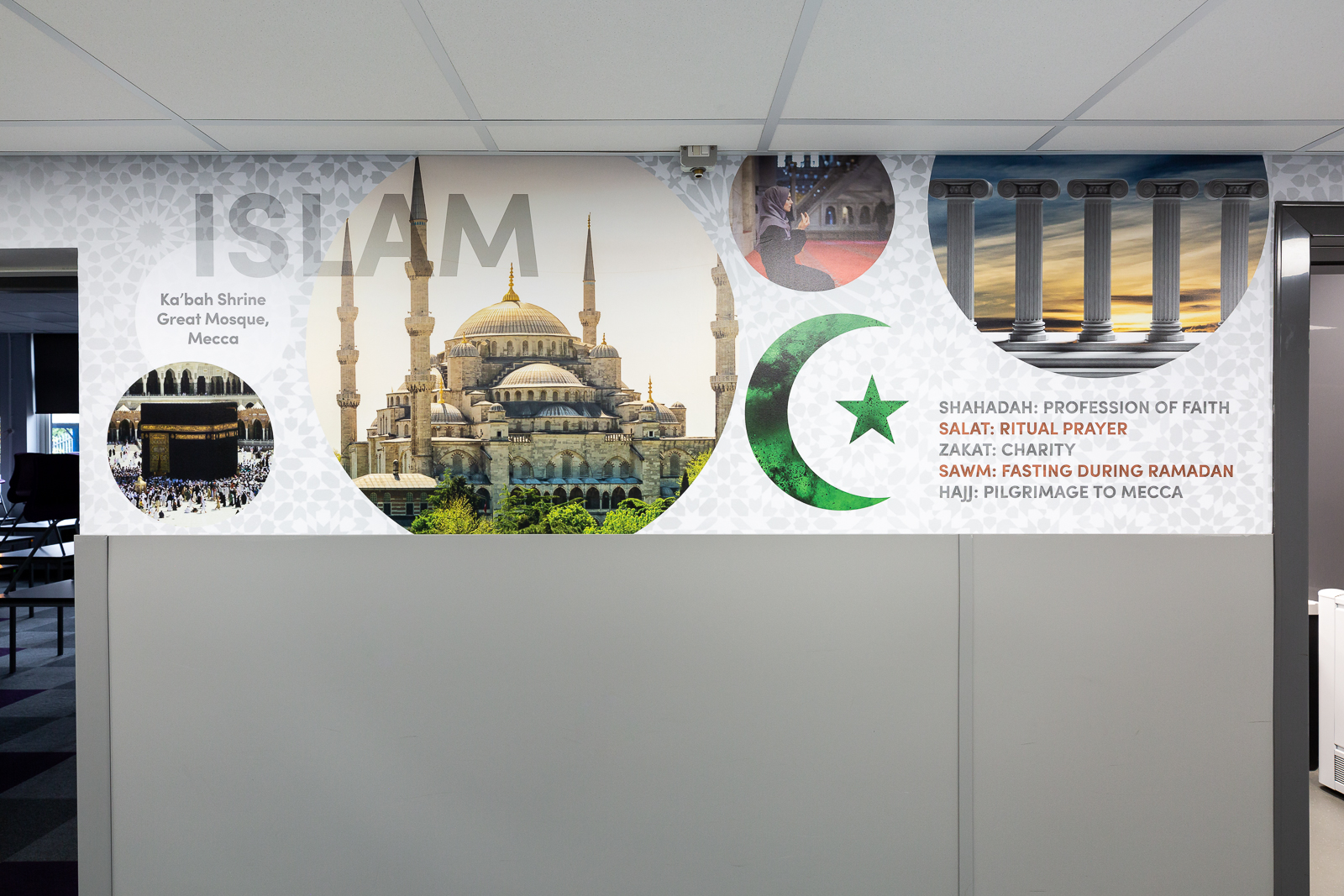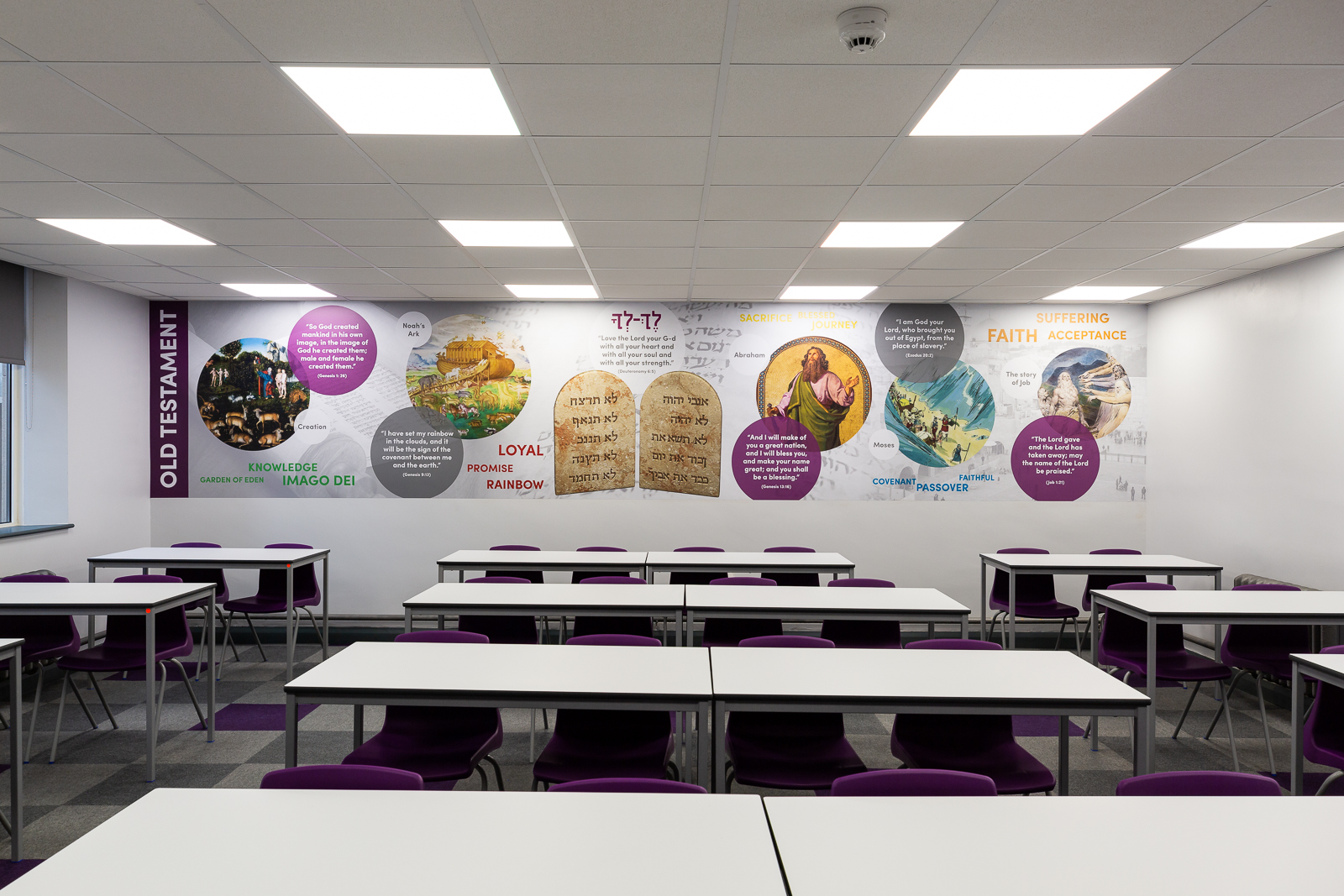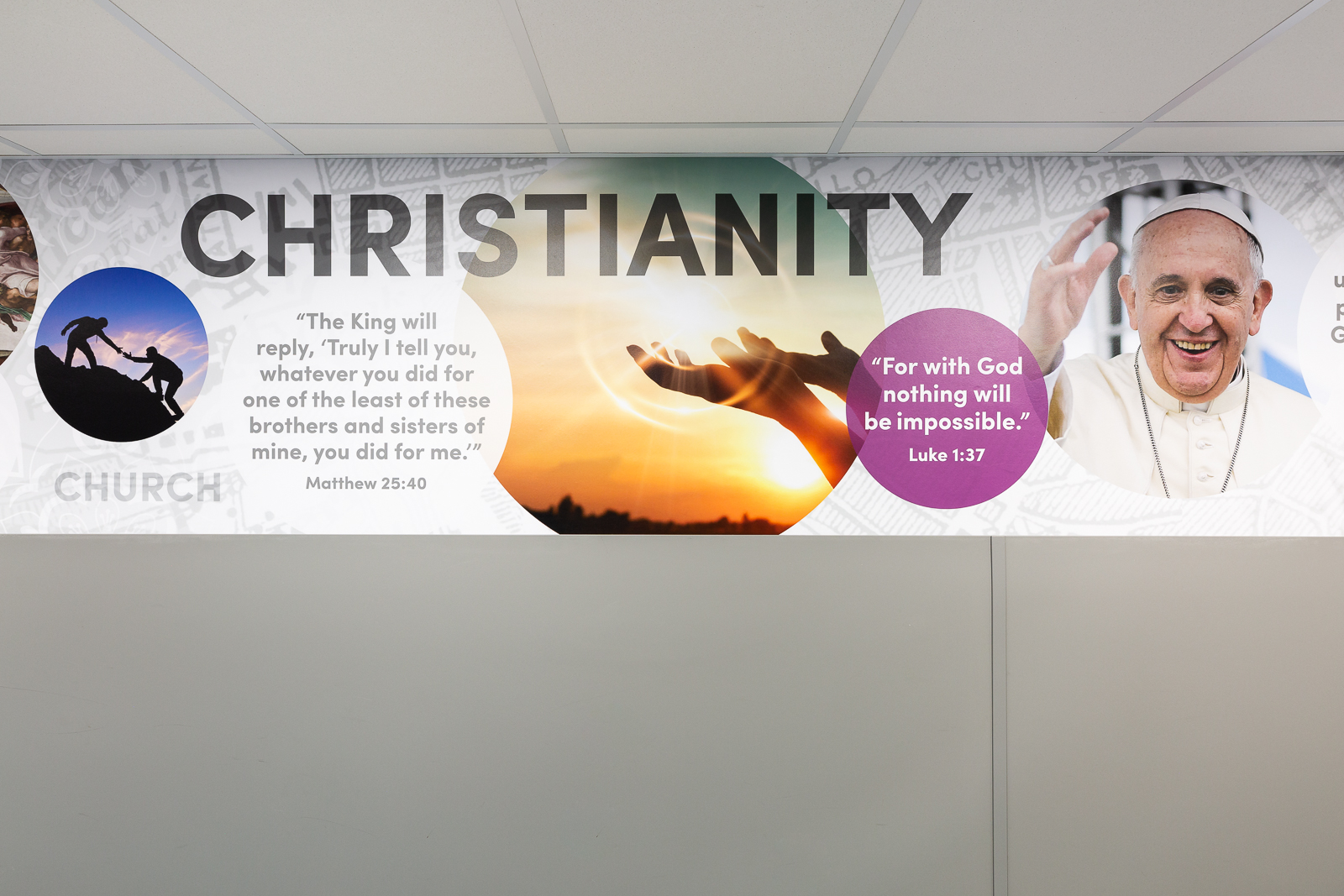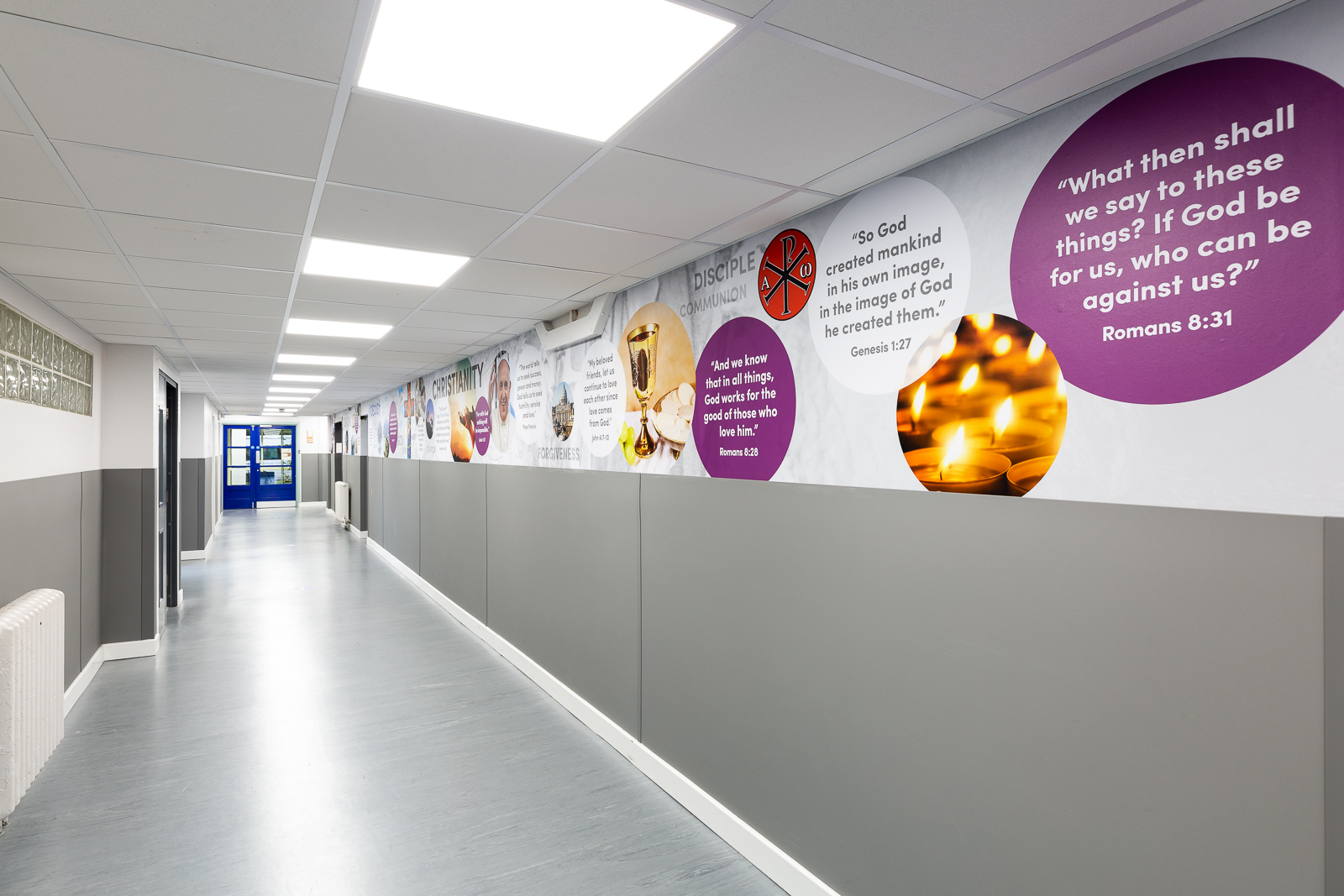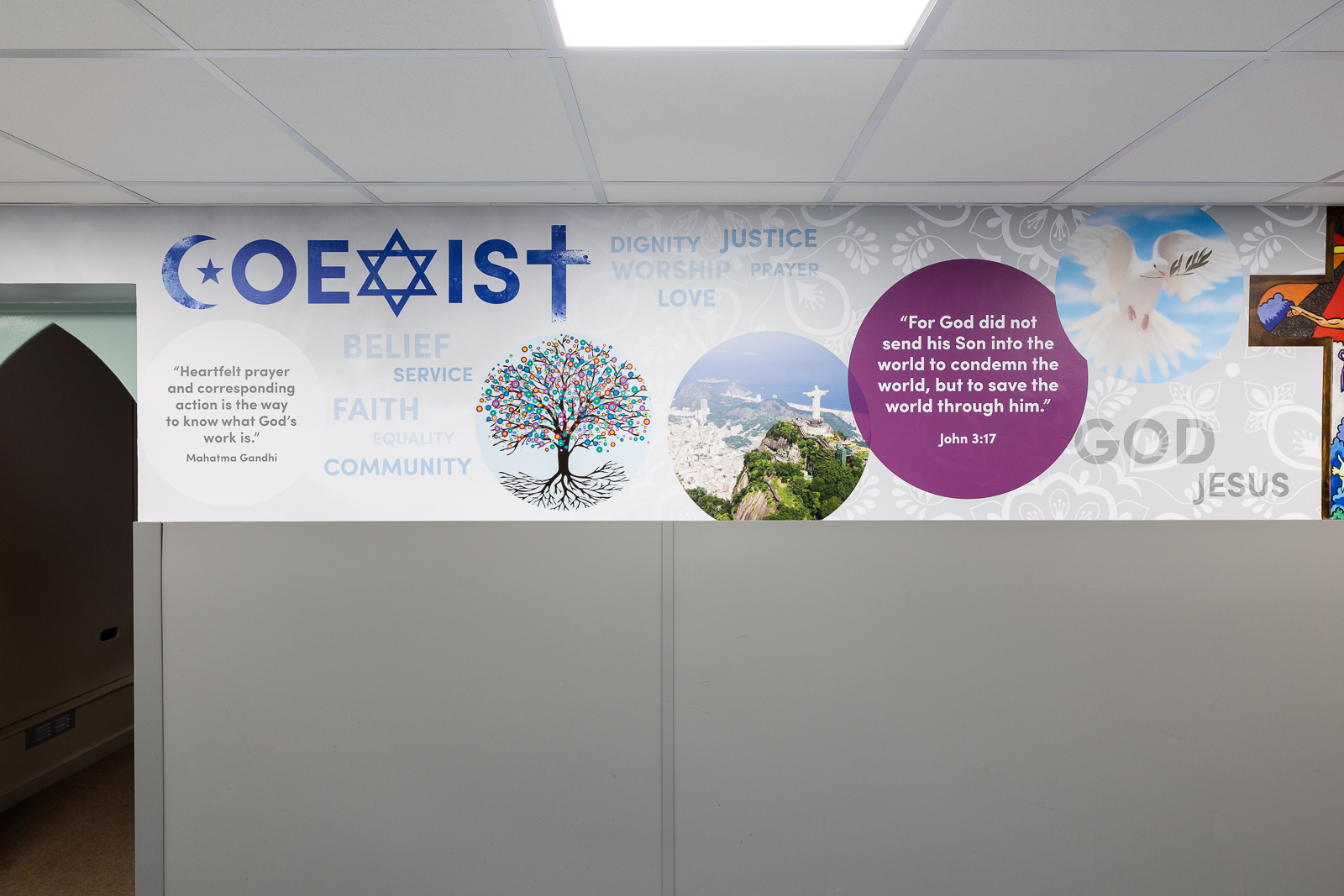Within the RE department we strive for educational excellence whilst allowing our students to
move forward in their faith journey
“Gold there is, and rubies in abundance, but lips that speak knowledge are a rare jewel.” Proverbs 20:15
RE Curriculum Intent
What is Religious Education?
The teaching of a particular religion with reference to various aspects; it’s beliefs, doctrines, rituals customs and rights.
What is the purpose of the subject? (the broad aims linked to the local context)
Fundamentally, the purpose of RE in Catholic schools is to profess the faith that Jesus gives us. The job of Catholic educators is to proclaim the Good News, fulfilling the Church’s mission of evangelisation.
A Catholic school should build the foundation for spiritual development, enabling pupils to partake in moral discernment which should have a positive impact on their lives outside of the school environment.
The education of young people is an important building block of the society in which we aspire to live. This consists of a society made up of people from different religious and non-religious backgrounds and therefore it is important that RE addresses the similarities and differences between these belief systems, to build a society based on tolerance and community cohesion. Considering the context of our school in Birmingham, it is important that pupils have the opportunity to learn about the similarities between Christianity and Islam, as the number of Muslim children is on the increase, and now forms the second largest number of students outside of Christianity who identify as belonging to the faith. As the most recent census data (below) also indicates that Hinduism has the second highest number of students belonging to that faith (outside of Christianity and non-identified) it is imperative that Hinduism has space on the curriculum.
Why is this subject important?
Religious Education develops pupil’s knowledge and understanding of beliefs, languages, traditions and practices of the main religious traditions in Britain today. It encourages pupils to consider and respond to important questions related to their meaning and purpose in life. It encourages pupils to develop spiritually and morally as well as helping them to understand and relate to belief systems outside of their own experience. These encounters with faith enable students to engage with critical dialogue in a respectful capacity which in turn promotes community cohesion and enables pupils to become educated and well-rounded citizens who have been provided with the foundations for life-long learning.
What are the key concepts and/or big ideas in this subject?
Creation as a concept explores the themes of transcendence, dignity of the human person and revelation. Many of these beliefs come from the Genesis creation narratives and include beliefs such as Imago Dei, Sanctity of Life, God’s omnipotence and omnibenevolence and how God reveals himself to humanity.
Morality refers to principles concerning the distinction between right and wrong or good and bad behaviour. Within this concept students will learn to evaluate the extent to which an action is right or wrong by applying religious and non-religious principles, for example, issues such as abortion, capital punishment and just war.
Ways of Life refers to the rituals, festivals, ceremonies, worship practices and tradition of specific religions, as practised in the UK. Students will form an appreciation for Catholic tradition such as the liturgical calendar, Jewish tradition such as the celebration of Shabbat and Muslim tradition, such as the Five Pillars of Islam.
Beliefs refers to the state of mind where we consider something to be true. Within this concept we will develop an understanding of the origins of religious belief through a study of the relevant sources of authority for each religion and the creation of religious doctrine.
How is this curriculum ambitious for all pupils? (including SEND and PP)
The RE curriculum is appropriate and ambitious for all learners, including those with SEND needs, Pupil Premium and varying starting points. Firstly, the curriculum meets requirements set out by the Bishops in the Curriculum directory for Catholic schools in England. The mapping of the curriculum against these requisites ensures that our RE curriculum is line nationally with the expectation laid out by the Catholic Church. Secondly, although not a legal requirement, our RE curriculum also considers concepts, themes and ideas laid out not only the Birmingham locally agreed syllabus, but those of other areas. This has added a breadth to the curriculum that may not have been achieved by a sole focus on the Catholic curriculum. As curriculum time for RE is 10% across all year groups, our curriculum not only has the breadth and depth of faith and non-faith schools, but draws in content from higher study such as AS and A level specifications. Our purpose designed curriculum prepares students for their next steps and prepares them for further study on RE, Philosophy and ethics AS/A level courses. The curriculum is well sequenced to ensure that students build on their religious literacy from Year 7 all the way to GCSE, learning to apply religious vocabulary and applying the skills of evaluation and analysis.
